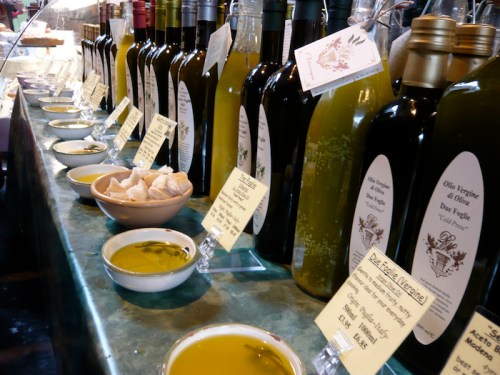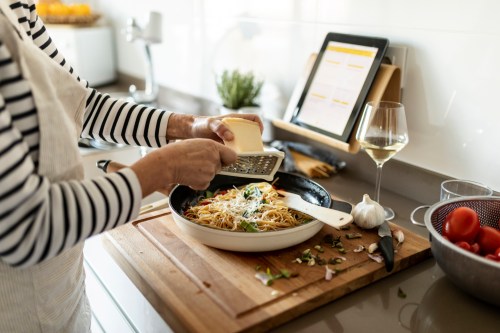Should you really be cooking with olive oil?
Because of its low smoke point, rumors say heart-healthy olive oil is toxic in a frying pan. We asked the experts and checked the research for the facts.

For most healthy cooks, extra-virgin olive oil is the pantry staple equivalent of black yoga pants in your workout wardrobe. And for good reason—countless studies have found that adding it your diet can help prevent heart disease, lower blood pressure, and reduce the risk of Alzheimer’s disease, among other benefits.
More reading:The filmmaker who wants Millenials to start thinking about Alzheimer’s
But lately, there have been lots of rumors swirling about the fact that cooking with olive oil at high temperatures may cause it to change from healthy kitchen must-have to free radical-forming villain.
So, should you stick to drizzling it on your salads and find another oil to sauté with? We asked the experts and delved into the research to find out.
Fat facts
Oils are made up of a combination of fats—saturated, monounsaturated, and polyunsaturated—and olive oil is very high in the healthy monounsaturated variety, which is the main reason doctors and dietitians alike have been raving about the stuff for years, says Brooke Schneid, MS, RD, a nutritionist based in Alexandria, VA.
More reading: Let go of the myth that fat makes you fat
“In addition to the fact that olive oil is composed of predominantly monounsaturated fats—the best kind for good health—it’s also one of the few oils that’s available in an unrefined state,” says Schneid, “and the less refining, the higher the antioxidant content.” That’s the good news.
Smoke signals
The problem is, the less refined an oil, the lower its smoke point, or the temperature at which it stops shimmering in the pan and starts smoking up your kitchen.
“When you heat olive oil above its smoke point, the fat starts to break down and those beneficial antioxidants and other health-promoting compounds in the oil start to decompose,” explains Felicia D. Stoler, DCN, RD, a doctor of clinical nutrition and registered dietitian in Red Bank, NJ.
“Worse, this causes potentially health-harming compounds to form,” she adds. Among those are free radicals—volatile compounds that have the potential to wreak havoc in the body. “If the oil starts to smoke, those free radicals even waft into the air, causing a double-whammy effect,” adds Schneid.
More reading:Why free radicals are really bad for your skin
Since extra virgin olive oil’s smoke point—in its healthy, unrefined state—is low, at about 320–325 degrees Fahrenheit, it seems like you’d want to avoid cooking it at high temperatures, given the free radical-creating potential. Except…

What the research shows
Contrary to that logic, many studies on olive oil, like this one published in 2010 and another in 2007 , have shown that its actually highly resistant to oxidation and stays stable, retaining its nutritional properties, even when fried at high heat for long periods of time. (Even compared to oils with higher smoke points, like vegetable oil.)
Researchers think that’s related to its fat composition and also its high concentration of polyphenols, the same antioxidant compounds that you’re trying to ingest to help your body fight free radicals. Those babies are protecting the oil, too.
The bottom line
Olive oil is okay for sautéing, though most nutritionists recommend setting the burner at medium-high (which should keep it from hitting its smoke point)—and tossing the oil and whatever’s cooking in it if lots of smoke materializes. If you want to be super cautious, opt for coconut oil, which has healthy fats and a high smoke point, for super high-heat cooking methods like frying.
More reading:Coconut oil: The food both vegans and Paleo eaters are obsessed with
The most important takeaway? Look for the highest quality, unprocessed extra-virgin olive oil, which will contain high levels of those oxidation-preventing polyphenols, and store the oil in an airtight, dark container in a cool, dark place, so it doesn’t degrade before it hits the pan. —Meghan Rabbitt and Lisa Elaine Held
(Photos: Foodies Feed, Flickr/Wordridden)
Sign Up for Our Daily Newsletter
Get all the latest in wellness, trends, food, fitness, beauty, and more delivered right to your inbox.
Got it, you've been added to our email list.










